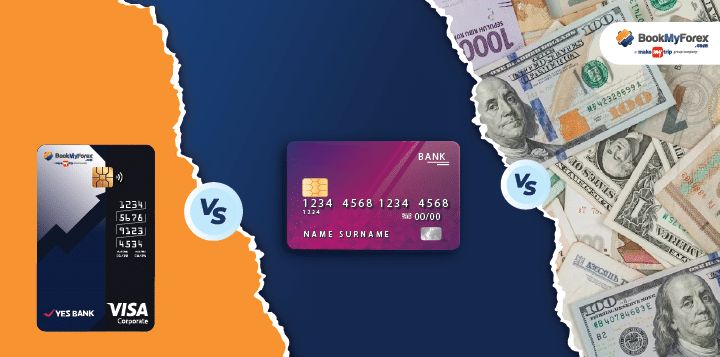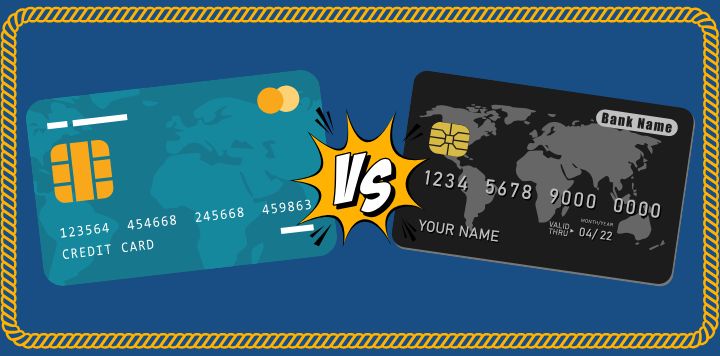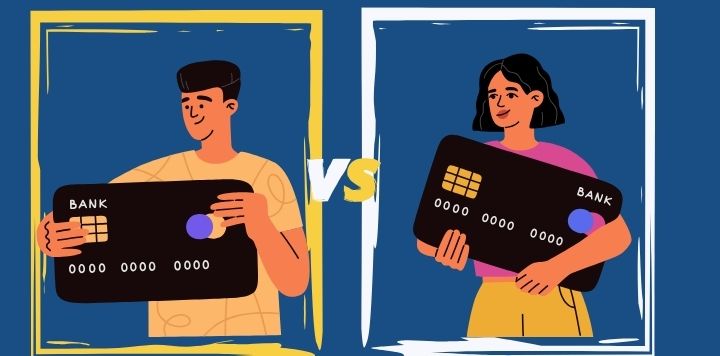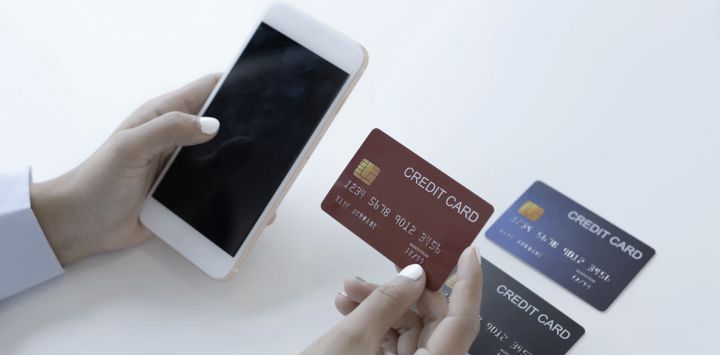Summary: Going abroad soon? Compare forex cards, debit cards, and cash to find the safest and most cost-effective solution. Discover why forex cards with locked-in rates, zero markups, and minimal fees are a smarter choice over cash and debit cards.
Forex Card or Cash? Forex card or Debit card? What should you use when abroad? What’s the cheapest and most convenient option among these? These are the questions that hover around before anyone leaves for their trip abroad. To find out the answer, let us dig a little deeper!
Choosing Your Ultimate Travel Companion: A Detailed Comparison
Let’s analyze each of the three options for managing your travel money (cash, debit cards, and forex cards) to help you determine the best fit for your upcoming trip.
Cash: The Classic Approach
Cash is the default option for many as it is the simplest mode to make payments abroad. But cash comes with its own set of problems. It is definitely the least safe option when traveling abroad. It’s difficult and risky to carry lots of cash, and you will have to be extra careful with it. Also, if you are traveling to several countries, you will have to carry multiple currency notes. This is not convenient at all.
Advantages:
1. Universally Accepted: Almost always accepted, even in remote areas with limited tech infrastructure.
2. Simplicity: Transactions are straightforward and require no technology. Ideal for small, informal purchases.
3. No Transaction Fees: No fees are incurred for using cash directly.
Disadvantages:
Significant Rate Markups: These are often associated with currency notes, and can be as high as 5%.
1. Currency Availability: Less common currencies may be hard to find in physical form, with markups of 5-8% even if available.
2. Security Risk: Easily lost or stolen, with little to no chance of recovery. This is a major drawback when large amounts are carried.
3. Inconvenience: Carrying large sums of cash can be a significant burden, especially when traveling to several locations.
4. Limited Transaction Tracking: Tracking expenses becomes difficult, which also makes budgeting very difficult.
Debit Cards: The Familiar, but Potentially Costly, Option
A debit card is a rupee-based card linked to a savings account, and automatically converts INR into the local currency of the country you’re spending money. You have to open an account with the bank before using the card; this is bothersome since most other travel card instruments do not require opening up a bank account. With a debit card, currency rates are also not fixed. The rate would vary for every transaction, as you swipe your card in a merchant location. Plus, there are quite a few charges associated with its usage.
Advantages:
1. Popular Method: Accepted at many merchants and ATMs worldwide, simplifying transactions.
2. Convenience: Simply insert or tap your card to make purchases at stores, restaurants, and other businesses, eliminating the need for cash handling.
3. Familiarity: You already understand how to use it, making transactions intuitive and stress-free.
Disadvantages:
1. Rate Markup: Using your debit card in a foreign country usually means you’ll pay more than the actual exchange rate. This is because your bank or card provider adds a markup of 1-3%.
2. Variable Exchange Rates: The rates may change for each transaction and may result in costs greater than expected. They may not be the best available rate applied.
3. Fees: International transactions with debit cards often incur significant charges, including upto 3% foreign transaction fee and ATM fees ranging from ₹400-500. These fees can quickly add up.
4. Withdrawal and Spend Limit: Debit cards typically have lower daily transaction limits; for example, the approx limit is INR 100,000 for ATM withdrawals, INR 7,50,000 for POS and online transactions, and INR 5,000 per contactless payment.
5. Security Risks: Exposing your entire funds with a debit card while traveling internationally can be risky, as it gives access to your full account balance. In contrast, a prepaid card is loaded with a set amount, limiting your exposure and reducing the risk in case of theft or loss.
6. Acceptance: Some smaller businesses or merchants in remote areas with outdated payment systems may not accept cards.
Forex Cards: Your Pre-Paid Travel Companion
A forex card, also known as a travel card or prepaid card, is one of the most convenient and safest ways to carry foreign currency while traveling abroad. Several currencies can be loaded on forex card at a time. Once the card is loaded, you can use it to make payments or withdraw cash in the local currency of the destination country. You can even reload the card if you exhaust your money. Furthermore, the exchange rates stay locked in regardless of how INR performs against foreign currencies.
Advantages:
1. Real-Time Exchange Rates: Forex card offer dynamic exchange rates that are typically much closer to real-time interbank rates, with zero markup.
2. Rate Certainty: The exchange rate is locked at the time of the card loading, so there is no risk of rate fluctuations.
3. Multiple Currencies: Many providers allow loading multiple currencies onto a single card, making transactions in multiple countries easier.
4. Zero Fees: The card often comes with zero issuance, annual, maintenance, or inactivity charges.
5. Enhanced Security: PIN protection, ability to block the card remotely if lost or stolen, and often includes insurance against loss or theft.
6. Global Acceptance: It is accepted by millions of merchants and ATMs worldwide.
7. Cost-Effectiveness: It offers more favorable exchange rates than debit cards or cash exchanges, thus saving more money.
8. Expense Tracking: Most cards offer online portals or mobile apps for easy tracking of expenses, enabling you to know how much you spend in real-time.
9. Easy Reloading: Never run out of funds mid-trip! Forex cards can be reloaded almost in real time, providing flexibility and convenience.
Disadvantages:
1. Acceptance in Remote Areas: Some smaller businesses or merchants in remote areas with outdated payment systems may not accept card payments.
2. Daily Limit: Forex cards offer withdrawal and spending limits similar to debit cards—for example, ATM withdrawals up to $1000 and POS/online transactions up to $7500. These limits can be sufficient for some travelers but restrictive for others, depending on individual preferences.
Forex Card vs. Cash vs. Debit Card: Side-by-Side Comparison
| Feature | Cash | Debit Card | Forex Card |
|---|---|---|---|
| Security | Low | Moderate | High |
| Convenience | Low | High | High |
| Exchange Rates | Fluctuating rates | Fluctuating rates | Locked-in best rates |
| Rate Markup | Up to 5% markup | 1-3% markup | Zero markup |
| Fees & Charges | Not applicable | Issuance fee: 1000 INR, Annual fee: INR 750-1000, Replacement fee: INR 100-200 ATM withdrawal fee: 3.5-4% of the withdrawn amount, Foreign transaction fee: Up to 3% | Zero issuance, reload, unload, inactivity, annual charges Minimal 2$ ATM withdrawal fee, Replacement fee: INR 250 |
| Acceptance | Almost universal | Widely accepted | Widely accepted |
| Expense Tracking | Difficult | Usually easy | Usually easy |
| Withdrawal Limit (Approx) | Not applicable | INR 1,00,000 for ATM withdrawals, INR 7,50,000 for POS & online transactions, INR 5,000 per contactless payment | $1000 for ATM withdrawals, $7500 for POS & online transactions, $40 for contactless payment |
| Multiple Currency Support | No | No | Yes |
Final Verdict: The Best Choice for Your International Trip
A majority of people still use debit cards, believing that it is the most convenient and the best way to make payments abroad. Such notions stem from a lack of awareness about the hefty foreign transaction fees, 1-3% markup, and other charges that are associated with debit card usage. For most practical purposes, travelers would be better off carrying a prepaid forex card that comes with zero rate markups and minimal fees.
Now the only advantage of currency notes is that they are accepted everywhere, but keep in mind that cash is not the safest option when traveling abroad. The availability of cash currency can be limited, particularly for less common currencies. Even when these currencies are available, the markup can be as high as 5-8%. Hence, carry a little cash only for emergencies, and the rest money in a forex card.



























